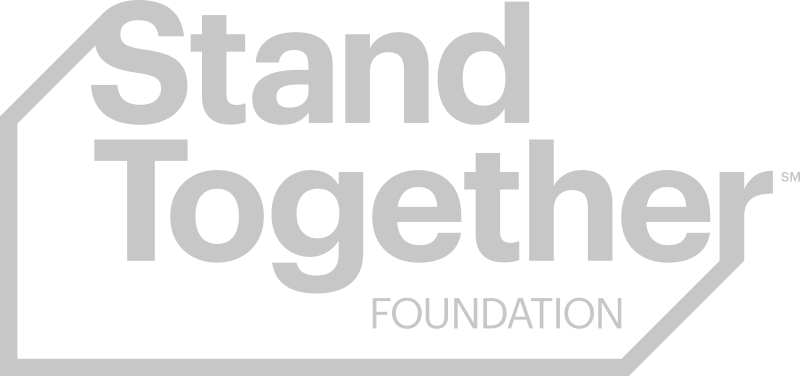“What if a little restaurant in Lexington, Kentucky, can solve the addiction issue in America?” asks Rob Perez, owner of DV8 Kitchen, a restaurant and bakery in Lexington, Kentucky.
The question is rhetorical, as Perez believes he might have the answers to the country’s ongoing drug epidemic.
The solution he’s found is to give recovering drug users gainful employment at an organization that understands the unique challenges of addiction recovery. By providing such an environment, newly sober men and women can begin building the emotional tools, financial base and life skills needed to treat their addiction and re-assimilate into society.
“We tend to think of people in addiction recovery or who have a past addiction as failures. There’s no way they’re going to be able to do it,” Perez says. “Instead, think about the possibility. People in addiction recovery have an amazing capacity for excellence. We just need to give them a chance.”
Having worked in the restaurant industry for years, Rob and his wife and business partner Diane are acutely aware of the addiction crisis in the U.S. The Perezes moved to Lexington 18 years and opened a restaurant, and they quickly learned that addiction was pervasive among restaurant workers.
“After 10 years of business in the restaurant industry, we lost 13 people — not because we fired them, but because they’re dead.”
Rob Perez
Approximately 100,000 Americans die each year of a drug overdose, and the nation’s drug epidemic has only exacerbated during the Covid pandemic. Overdoses have spiked since the start of the pandemic, and 13 percent of Americans reported starting or increasing their substance use as a coping mechanism for the Covid crisis.
The restaurant industry is especially conducive to substance abuse issues. Restaurant workers are surrounded by alcohol and drinking during their shifts, and constantly asking, if not encouraging, their patrons to purchase more booze.
The act is normalized during work hours, and it’s reinforced once a shift is over. Anyone who has seen an Anthony Bourdain show or read any of his books knows that restaurant workers are notoriously hard partiers. After a shift, it’s typical for restaurant workers to bond together by spending all their hard-earned tips buying drinks and getting waited on themselves.
Combine that with the abnormal work hours, and you have an environment rife with substance abuse. (There’s a famous saying in the restaurant industry that goes: “We start when everyone else is done with work. We’re done with work when everyone else is in bed. And we go to bed when everyone else is waking up.”)
“While it’s fun, it can harbor some pretty significant issues,” Rob says of the restaurant industry.
Making matters worse for the Perezes and other Lexington-area restaurants was the opioid crisis afflicting the region. Diane once found an employee shooting up heroin in the bathroom.
But rather than fire the employee and criminalize her for her addiction, the Perezes opted for a more humanistic, rehabilitative approach. They created DV8 Kitchen, a restaurant and bakery staffed entirely by people in addiction recovery.
At its inception, 30% of DV8 Kitchen’s employees were recovering substance users. Now they hire 100% and have opened a second restaurant location.
Brandy, one of the Perezes’ employees, began working at DV8 Kitchen nearly two years ago. Other restaurants wouldn’t hire her, despite her having been sober for seven months at the time.
Brandy’s arrival at DV8 Kitchen was the culmination of a yearslong struggle with addiction recovery. Prior to her recent relapse, Brandy had been sober for 11 years. “I remember this wonderful sober life I had had before,” Brandy says. “I met my husband. We had our two beautiful children. It was the best life I had ever had.”
Her relapse was triggered by her husband’s relapse after he was prescribed pain medication for a shoulder surgery. Brandy’s husband relapsed after 10 years of sobriety. He later overdosed and died.
“It started with alcohol and it escalated to anything I could put into a needle and stick into my body.”
Brandy
Back in the throes of addiction, Brandy’s life quickly deteriorated. “We lost our home. We lost our children. I lost my husband. Everything,” she says. “That was when DV8 entered my life.”
Brandy’s children currently live with the parents of her deceased husband while Brandy is working through recovery. “My main goal is to be the best sober mother I can,” she now says.
One of the most helpful aspects of DV8 Kitchen is that the philosophy of the establishment corresponds with the lessons learned in addiction recovery. “It’s the same set of tools learned in the treatment center I was in. The accountability, the emotion, the emphasis on being transparent,” Brandy says.
Working alongside fellow recovering users helps alleviate the stigma often suffered in this community and helps workers feel more at ease.
“This place played such a huge role in my sobriety,” Brandy says of DV8 Kitchen. “I have so many people around me, supporting me and carrying me through this. It starts to create self-esteem. We’re able to grow.”
The nature of the work, recovering users serving people from the general population, also helps make addiction recovery more normalized for those who haven’t struggled with addiction.
At DV8 Kitchen, recovering users and customers interact every day, helping to expand people’s understanding about what recovery can look like.
“Our goal is to serve every single customer and turn them into a believer in second-chance work environments,” Rob says.
A year into employment and Brandy is still sober and working at DV8 Kitchen which has just opened its second location. The Perezes plan on taking this recovery model nationwide.
But Rob hopes DV8 Kitchen’s mission will extend even further and act as a template for other businesses hoping to help those in addiction recovery.
“If every American business decides to hire one person that only wanted a job, but really needed it,” he says, “we could make a massive difference in this country.”
